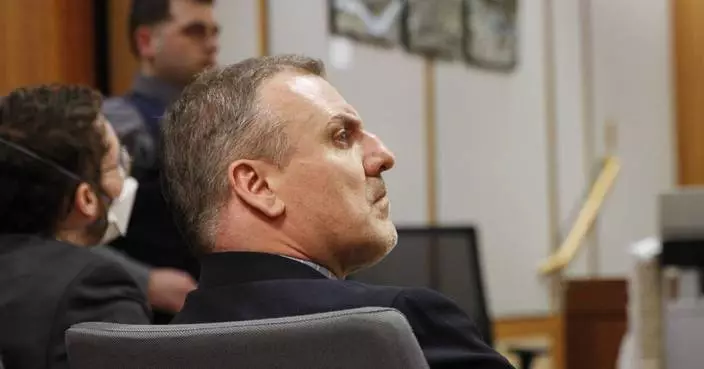Clair had the world at her feet when she was struck down by encephalitis, a dangerous inflammation of the brain.
A computer analyst whose memory was wiped by a rare brain infection now relies on a daily diary to remind her to eat and shower – but is incapable of “dwelling on negatives” as she forgets what they are.
Just a few years ago, after landing a lucrative job as a website systems tester and moving into her own place, Clair Bennett, now 29, of Swanley, Kent, had the world at her feet.
But, after complaining of “violent headaches” and feeling increasingly feverish, in 2015 she was struck down by encephalitis – a rare but serious inflammation of the brain – which left her unable to remember things after only a few minutes.
Clair, who spent a lengthy stint in hospital, asked her dad Mark, 60, to speak out on her behalf for World Encephalitis Day 2019 on February 22, explaining how she now keeps a planner, which lists every task – however big or small – she has to complete on any given day.
Mark, his daughter’s full-time carer, said: “Clair is so positive and always smiling, but she couldn’t dwell on the negatives even if she wanted to, as she forgets them.
“As a family, we do all consider ourselves lucky when you see how encephalitis impacts some people, but her short term memory has been hugely affected. Now, she forgets things within a few minutes.”
He added: “For example, if you tell her a number and ask her to repeat it 10 minutes later, it won’t be that she can’t quite recall it – she’ll have no recollection of ever being told it.”
Clair, who cannot remember around six months leading up to her illness, was incredibly independent before encephalitis struck, even jetting off to Australia for a solo trip right before she became unwell, according to Mark.
Then, in January 2015, she began to complain of headaches and fever, consulting a doctor, who said it was probably a flu-like bug and told her to simply take paracetamol and rest. But, by 12 January, she had deteriorated enormously.
Mark recalled: “Clair’s work had phoned her flatmate to say she hadn’t come in, asking if she was okay.
“When she went to check on her, Clair was really disorientated, asking if she was in America.
“She phoned me to let me know what was going on, but I wasn’t sure why any of this was happening, or what to think of it, which I feel guilty about now.”
With Clair fading fast, an ambulance was called, and she was raced to Queen Elizabeth Hospital in Woolwich, south east London.
When Mark arrived, doctors broke the news that they were extremely concerned about her, fearing she had contracted encephalitis.
According to the charity The Encephalitis Society, 500,000 children and adults worldwide are affected by the infection every year – yet, statistics by YouGov suggest 78 per cent of the public do not know what it is.
Mark continued: “They told my wife Penny – Clair’s mum – and I to go home and get some rest, as she’d be in intensive care overnight.
“The next morning, we came back and she was awake, but very disorientated. She kept asking if we had missed Christmas and then, when I asked if she knew who we were, she said no.
“As a dad, that still makes me emotional – for your own daughter not to recognise you.”
Pumped full of medication, Clair began to rally and, after two weeks, she was discharged, but it was plain to see her memory had been affected.
While she was able to recall things that had happened and people she knew before, her short-term memory was virtually non-existent.
Mark explained: “Thankfully, she’d got back who we were and could remember things like where she grew up and who her old friends were. But she couldn’t hold on to short-term memories. Friends would come round and visit, and she’d soon forget she’d even seen them.”
Still, while it was uncertain how permanent her memory issues would be, Clair and her family were looking forward to putting their nightmare behind them – until, just three days after she was discharged, she was struck by encephalitis again.
Mark added: “She came downstairs one morning and seemed really wobbly, as if she could fall over at any second.
“The only thing I could think to do was what I’d seen on TV, where police test drunk drivers, getting them to count back from 20. She tried, but couldn’t do it.”
Worried, Mark phoned 111, the NHS non-emergency number, who sent out a paramedic.
Next, Clair was taken to Dartford’s Darent Valley Hospital in Kent, where it was confirmed she had encephalitis once again.
Unsure if it was a fresh bout, or if the previous infection had flared up once again, doctors kept her in hospital for around two months and one week, by which time her short-term memory was even worse.
PLEASE take a minute to download #BrainWalk to your smartphone.
There's been a great response so far – but we would love more people to join our award-winning campaign and support #WorldEncephalitisDay.
Search for #BrainWalk in your phone's app store and follow the instructions pic.twitter.com/ebYzu3vCwT
— Encephalitis Society (@encephalitis) January 24, 2019
Mark recalls an instance in August 2015 when, on the way to the ferry port for a family holiday, Clair asked 48 times in a 90 minute journey if he had her passport.
Now, following several ECG scans, doctors have confirmed that, sadly, she is unlikely to see any vast improvement.
Still, the remarkable woman is learning to cope and, on the advice of an occupational therapist, has been keeping a daily diary, where she records everything she has done that day, as well as reminders to do things like wash and eat.
Mark said: “She needs to be able to physically tick things off to remind her she’s done them, or she’ll have no idea.
“For example, she still loves cooking, but she has to follow recipes with a tick list, otherwise she’ll forget she has already finished a step, and start peeling a load of potatoes or prepping veg again. She can very easily get disorientated in new places, too.”
These days, routine is vital to Clair, as the only thing she finds helps her cling on to short-term memories is repetition.
So, every Monday she will go to the gym, Tuesdays are spent seeing her grandparents and Wednesdays are dedicated to more exercise, followed by art or piano lessons – which Clair forgets she has done, so often surprises herself at what a talented musician she is.
Mark said: “She’d been learning before the illness but doesn’t remember. Her teacher was actually Tokio Myers, who went on to win Britain’s Got Talent.”
Then, every Thursday she will volunteer in a charity shop, before spending Fridays with the brain injury charity Headway.
Thankfully, her loved ones have all been hugely supportive, and her friends know all about her daily planner and that they must remind her to use it.
Now, by speaking out, Clair and Mark hope they will be able to raise awareness of encephalitis, and the life-changing impact it can have.
Despite all she has faced, Clair is determined to stay upbeat, saying, “I am thankful I don’t remember any of being ill. I have my old memories back, but struggle with anything since.”
She continued: “Even if my short-term memory does come back, I will still keep my diary though. I wouldn’t be without it. I can look back on any given day of my life for the past four years, and know exactly what I did – even if I can’t remember it.
“I always look for the positives, and even though I can’t make new memories, I know I’m still getting a lot out of life now.”
For information, visit www.worldencephalitisday.org






